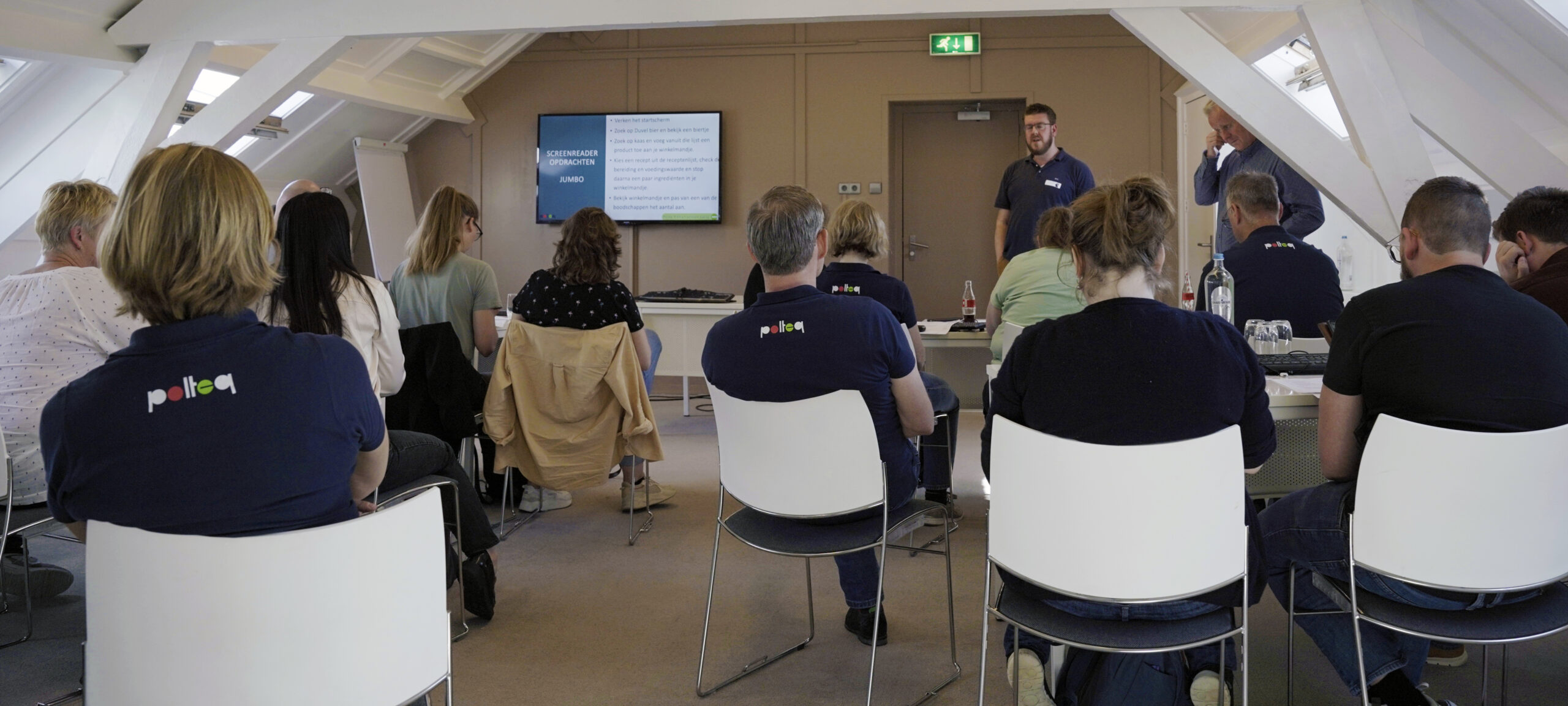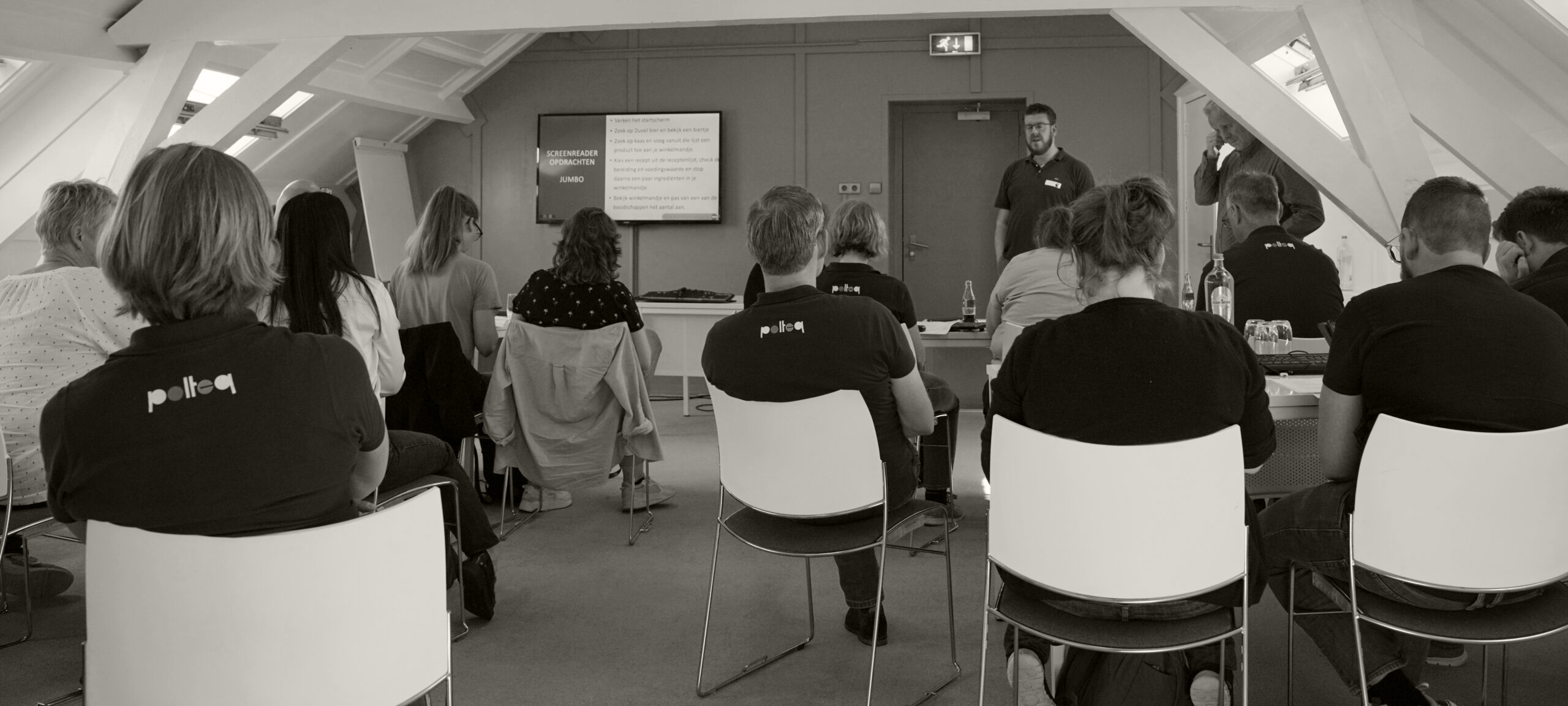Making Accessibility Accessible
The Polteq Conference stands out as a unique event, bringing together all Polteq employees from the Netherlands and Belgium for a day of knowledge sharing and inspiration. The program is curated by passionate colleagues who, through presentations and workshops, shed light on compelling topics in the field of testing.
It’s an opportunity to explore new ideas, collaborate on challenging issues, and inspire each other to elevate the practice of testing to new heights.
During the Polteq Conference last June, our colleague Tim Gravemaker led a workshop that highlighted the importance of accessibility in web development:
Accessibility is not just a matter of theory but, more importantly, a matter of action. To truly make an impact, it’s essential to understand what accessibility means for different user groups and how it can be effectively implemented in practice. A key question is: where do you start when testing for accessibility?
Accessibility in IT: From Theory to Practice
In projects like those at the Dutch Tax and Customs Administration, accessibility is an integral part of testing. Professionals often face similar challenges: what does accessibility really mean? How do you determine if a screen reader, for example, is functioning correctly? As knowledge on the subject grows, it becomes clear that accessibility doesn’t have to be as complex as it might seem. These insights led our testing professional, Tim Gravenmakers, to organize a workshop at the conference last June aimed at making accessibility accessible to everyone.
The Importance of Accessibility
Accessibility ultimately revolves around people. Simon Sinek’s “Golden Circle” concept emphasizes the need to start with the ‘why.’ In this case, that ‘why’ is inclusivity. The goal is for everyone, regardless of their limitations, to participate independently in society. When an application isn’t usable by everyone, the problem doesn’t lie with the user but with the application itself.
“When an application cannot be used by everyone, it’s not the user who is limited, but the app.”
As testers, we play a crucial role in promoting accessibility. We can raise awareness within teams and identify and resolve accessibility issues in products. This leads to accessible applications and fosters the independent participation of people with disabilities.
Accessible media and technology keep everyone connected to the things they care about. In this video, six people with disabilities share their views on the importance of accessibility:
The Moral and Financial Reasons
Accessibility goes beyond meeting legal requirements, such as the European Accessibility Act that will come into effect in June 2025. It’s also a moral obligation to make software accessible so that everyone can participate in society.
Moreover, there are business advantages to accessibility. Accessible apps attract a broader, often very loyal audience. Research shows that this can lead to up to 15% more customers. Additionally, companies can significantly reduce helpdesk costs because users can navigate accessible software more easily.
Hands-on Workshops at the Polteq Conference
During the workshop on accessibility, participants engaged in hands-on activities to improve digital accessibility. One example is a recent session where the Jumbo app was tested using screen readers and keyboards. The results showed that many functions did not work optimally, underscoring the importance and necessity of accessibility.
Dare to Act!
It is crucial for companies to gain the confidence to independently tackle accessibility within their projects. There are numerous opportunities to make a positive impact with relatively simple adjustments. Accessibility is not an optional feature but an essential part of every software application.
Together, we can ensure that everyone has user-friendly access to software, building an inclusive digital world.

